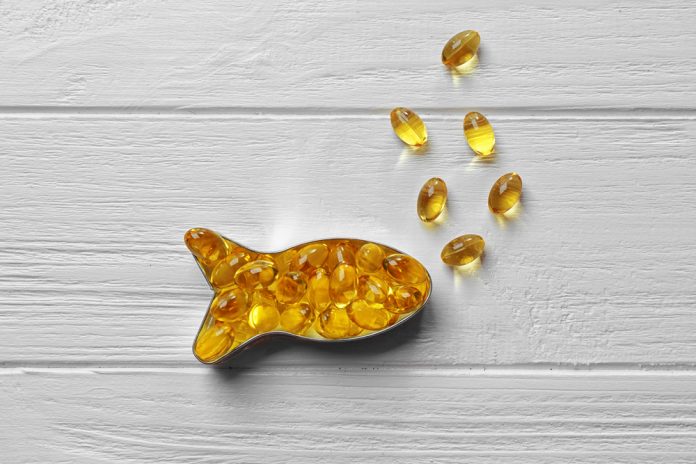Supplements are having a moment.
A 2022 survey of more than 3,100 U.S. adults indicated that 75 percent take some form of nutritional supplement. Of those consumers, 52 percent said they took a specialty supplement, like omega-3s, probiotics, or fiber.
Johna Burdeos, RD, a registered dietitian, says a myriad of factors have contributed to the popularity of supplements, vitamins, and minerals, including the pandemic and ease of purchasing via online retailers.
Still, supplements aren’t without their detractors. The industry isn’t regulated by the U.S. Food & Drug Administration (FDA).
Plus, you may wonder whether you need dietary supplements if you’re eating a well-balanced diet.
Here’s what the research and experts have to say about when it’s beneficial to add vitamins, minerals, and supplements to your diet, plus which ones to choose.
Are supplements necessary?
The subject is up for debate, even among experts.
“Supplements are not usually the only possible solution for most adults to achieve and maintain good health,” says Maddie , MS, RDN. “In fact, for many of those experiencing health problems, supplements are not usually the first line of defense that dieticians will turn to.”
Other lifestyle tweaks, like changes to diet and exercise recommendations, typically come first.
That said, supplements are recommended as a standard in some cases. In other cases, they may help fill in the gaps for nutrient deficiencies in the diet, says Stephanie , RD, a registered dietician and member of practitioner collective.
Common cases where providers will recommend taking vitamins, supplements, or minerals include:
pregnancy
lactation
infants receiving human milk or less than 32 oz. per day of formula
health improvement
special diets
deficiencies
Supplements you (might) need, based on research and experts
Supplements may have their detractors, but some can be beneficial, particularly in specific circumstances.
Prenatal vitamin
The American College of Obstetricians and Gynecologists recommends people with uteruses should begin taking prenatal vitamins when they start trying to become pregnant and continue intake throughout pregnancy. Burdeos recommends starting three months in advance of your first attempt to become pregnant.
The CDC recommends taking prenatal vitamins with 400 mg of folic acid to protect against certain birth defects.
The ACOG recommends getting at least 27 milligrams of iron per day during pregnancy, something often found in prenatal vitamins.
Burdeos says folic acid combined with iron provides benefits for a fetus.
“Folic acid helps prevent neural tube defects, which are serious abnormalities in the baby’s brain and spinal cord,” Burdeos says. “Iron helps facilitate the transportation of oxygen throughout the body. Iron helps support the proper development of the baby and the placenta.”
Vitamin D
About 42 percent of people are vitamin D deficient, and Black people have the highest rates— 82 percent, according to a 2022 .
The sun is a natural source of vitamin D, and egg yolks and fatty fish are quality food sources. Other than that, it’s slim pickings, according to the National Insitute of Health (NIH).
“It’s nearly impossible to get all the vitamin D you need from food alone,” Greunke says. “Oily fish, mushrooms, and fortified dairy provide vitamin D, but not in sufficient quantities to meet daily needs.”
Vitamin D deficiency is linked to multiple conditions, including:
poor bone health
cardiovascular Source
gestational diabetes
Research suggests that taking vitamin D during pregnancy could reduce the risk of:
preeclampsia
low birth weight
severe postpartum hemorrhage
pre-term
The NIH recommends that infants up to 12 months old take 10 mcg of vitamin D per day. Infant formula is fortified with vitamin D, so the Source says that children younger than 12 months who are exclusively formula-fed likely don’t need a vitamin D supplement.
A 2015 Source indicated that a lactating parent could take 6,400 IU of vitamin D per day to supply an adequate amount to the nursing infant through human milk.
The NIH advises that people ages 1 to 70 need 600 IU per day, and people over 70 should consume 800 IU per day. Since it’s challenging to get that from food, Greunke says a vitamin D supplement is worth it even past infancy.
Omega 3s
One of the most popular vitamins just might be Omega 3’s. They’re fatty acids naturally found in fish like salmon and nuts, such as walnuts.
Burdeos says that you may benefit from taking one if your diet is low on these items. Though omega 3’s are linked with good heart health, the National Center for Complementary and Integrative Source (NCCIH) says the data for that association is based on seafood intake.
However, the agency says it may help reduce triglycerides and soothe rheumatoid arthritis symptoms.
B12
B12 naturally occurs in animal products, and Burdeos says it’s important for:
red blood cell formation
DNA production
nerve function
cell metabolism.
An older study from that B12 deficiency is higher in vegans than in vegetarians. Nearly two-thirds of pregnant people were also deficient. She says B12 supplementation is worth it for individuals who are deficient, particularly those who do not consume animal protein.Iron
Iron is present in food like nuts and dark, leafy greens. According to the NIH, it :
carry oxygen from the lungs to the tissues
bolster muscle metabolism
support physical growth
aid in neurological development
Though Pasquariello typically recommends a food-first approach, people with iron deficiencies and those who are borderline anemic may benefit from iron supplementation.
Additionally, pregnant people should seek out a prenatal with iron to support fetal development. Always ask your doctor for the best option, as it’s possible to take too much iron, which in rare cases can lead to iron poisoning.
Magnesium
is a naturally occurring mineral and the fourth-most abundant one in the body. Still, nearly half of the U.S. population doesn’t ingest enough magnesium, according to a 2018 .
Greunke says that magnesium supplements can help.
Research indicates oral magnesium supplementation may help:
reduce blood pressure
lengthen sleep duration
reduce fasting and post-meal blood sugar
improve mood
Supplements you don’t need
Some supplements, like probiotics, are all the rage. But experts and researchers say the data isn’t there to support the hype. You can hold off on trying these supplements.
Green powders
These powders look healthy and have promising buzzwords on labels.
“Most greens powders products claim to be filled with whole food sources of nutrients and pre- and probiotics,” Pasquariello says. “This is highly deceptive, as it tricks consumers into thinking they can then substitute greens powders for actual greens or green vegetables.”
Pasquariello says claims that greens powders boost energy, performance, and digestion are unfounded.
There’s not much research on them other than a small, 40-person study from 2009Trusted Source that indicated that supplementing with a fruit and vegetable powder for 90 days might reduce blood pressure but not body weight.
Pasquariello suggests adding actual greens, specifically the leafy variety, to your diet instead.
Probiotics
Probiotics are one of the most popular supplements, but the indicates the evidence to support probiotic supplements for issues like diarrhea and ulcerative colitis is not supported by data at this time.
Mega-anything
Some products will market themselves as having “mega-doses.” The jargon sounds great, but Burdeos says it’s not.
“Unless it is specified by your doctor, these kinds of supplements are a case of too much of a good thing,” she says.
She says the mega-doses can have long-term impacts.
“For example, too much vitamin D can lead to kidney problems, and too much vitamin C can cause digestive issues,” Burdeos says.
This applies to taking any supplement at all. If you’re getting the nutrients from diet alone, there’s no need to add any more of it to your diet through an oral tablet or powder.
Buffered creatine monohydrate
Greunke and research from indicate that creatine monohydrate can reduce injury and speed recovery. “Buffered” and “advanced” versions claim to be a step up.
“These formulas are more expensive and state that they’re better absorbed, but that hasn’t proven to be true,” Greunke says.






























